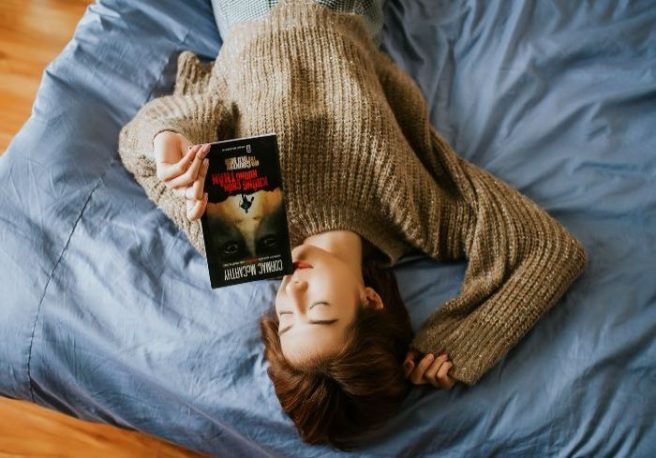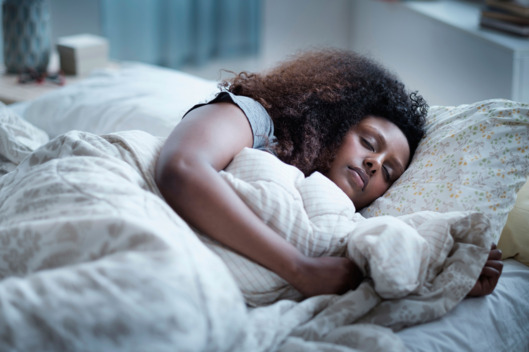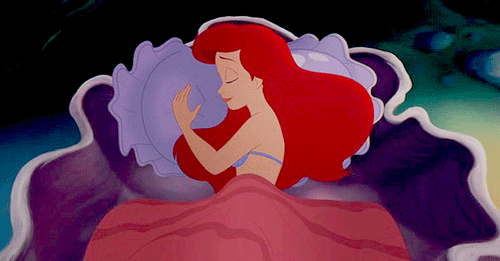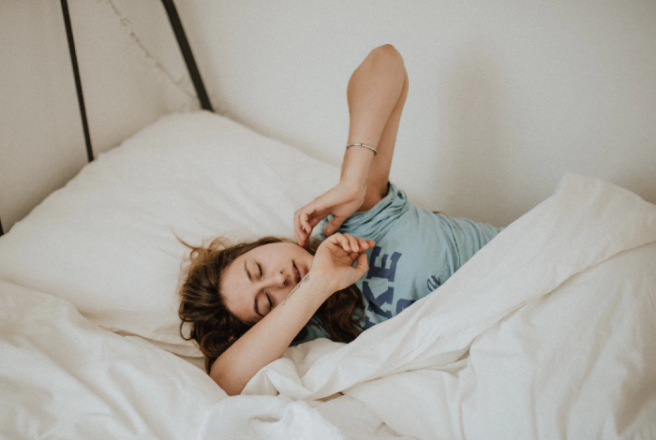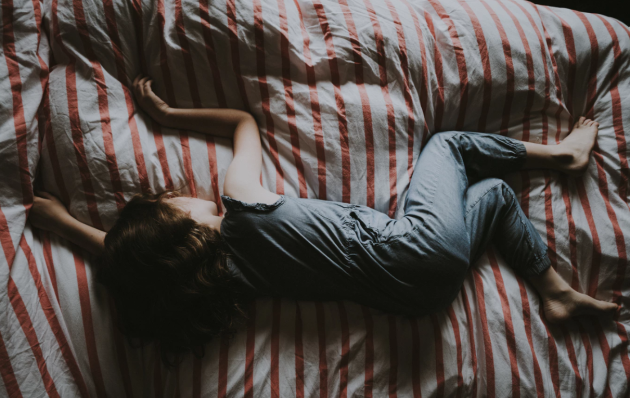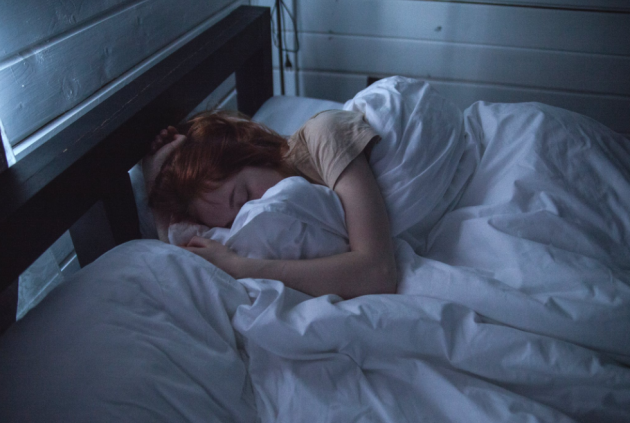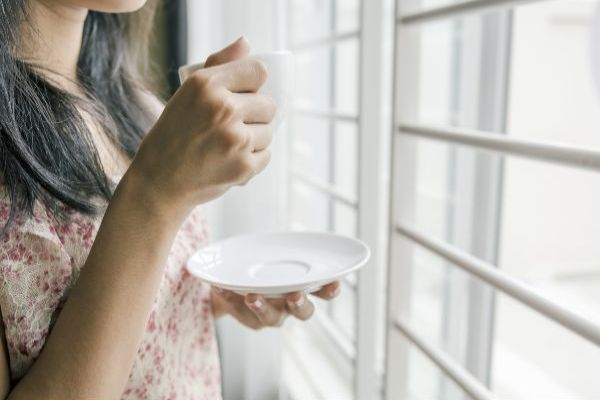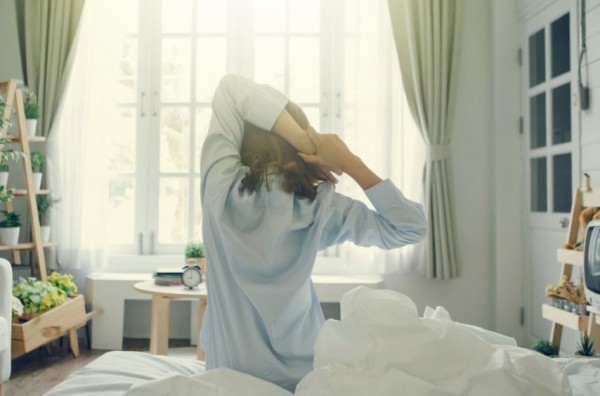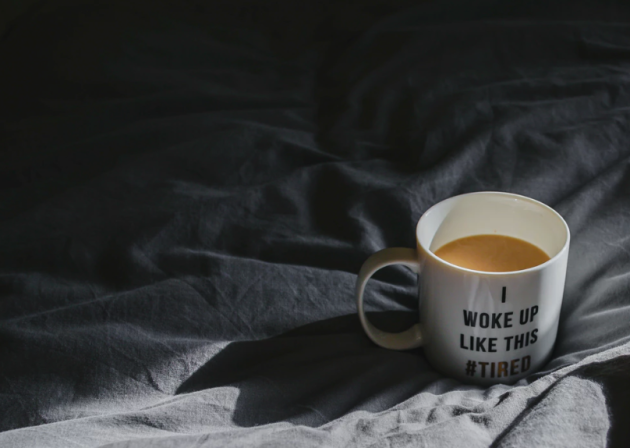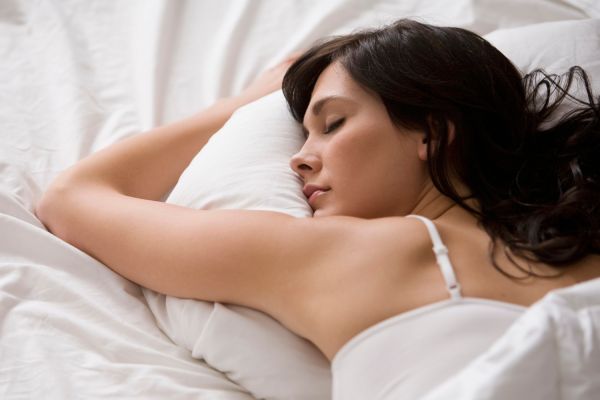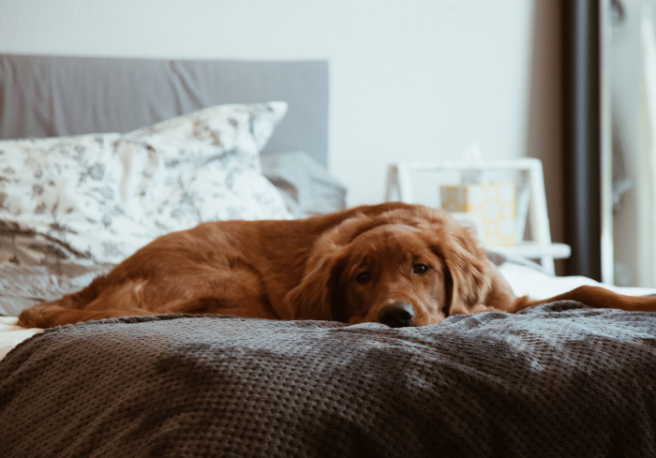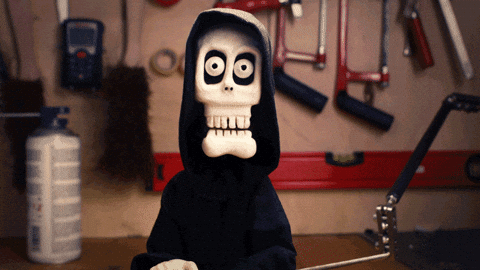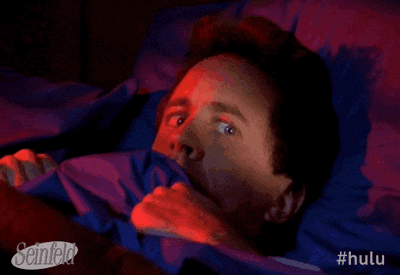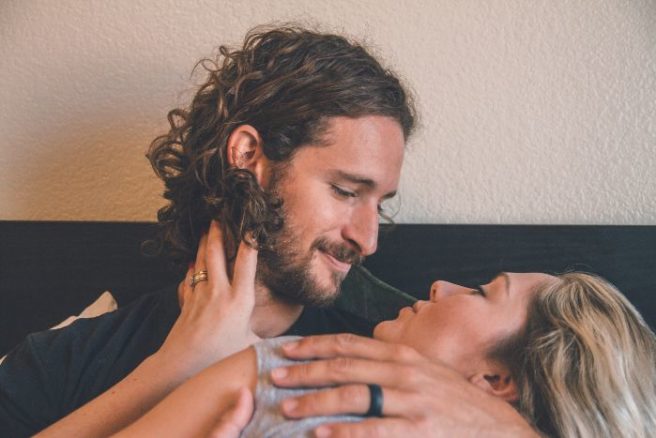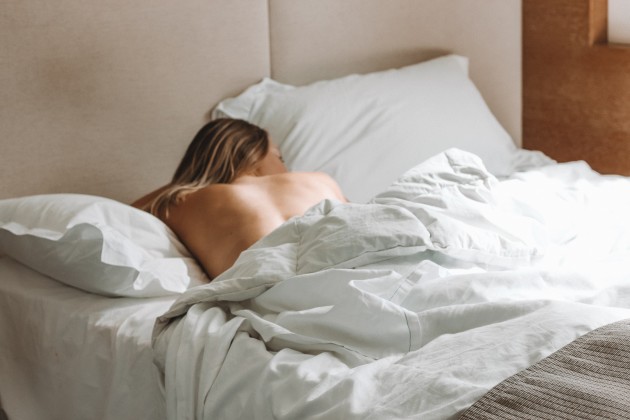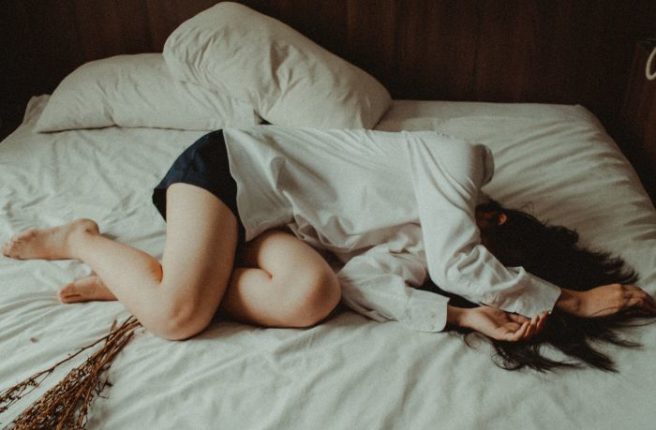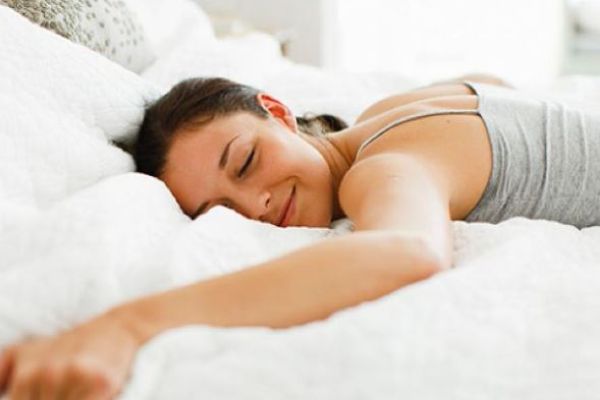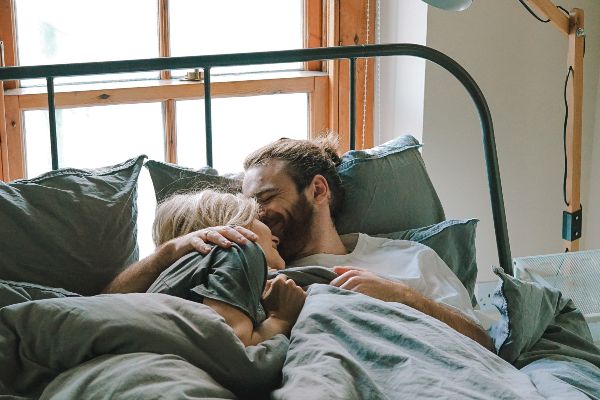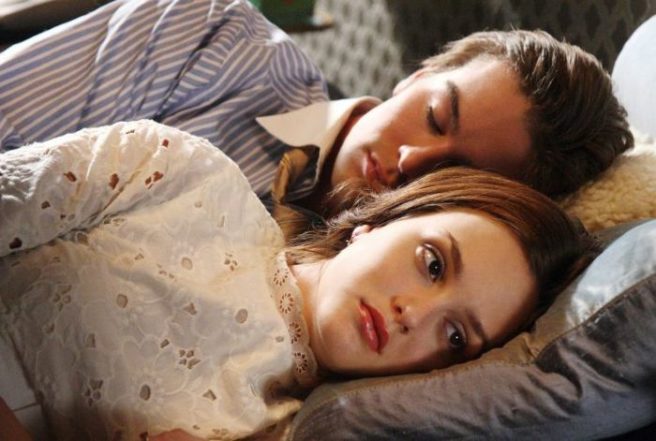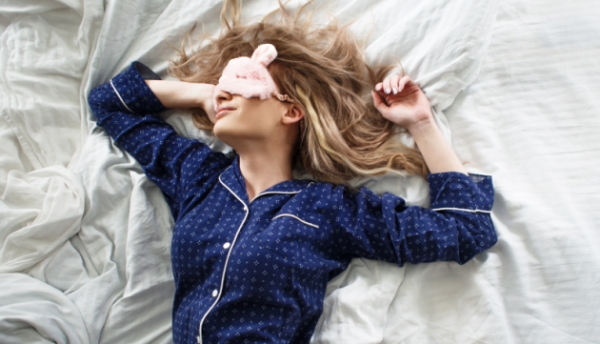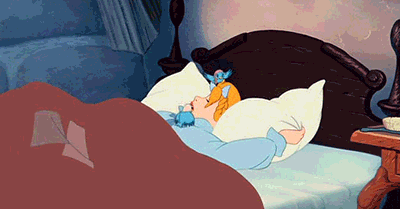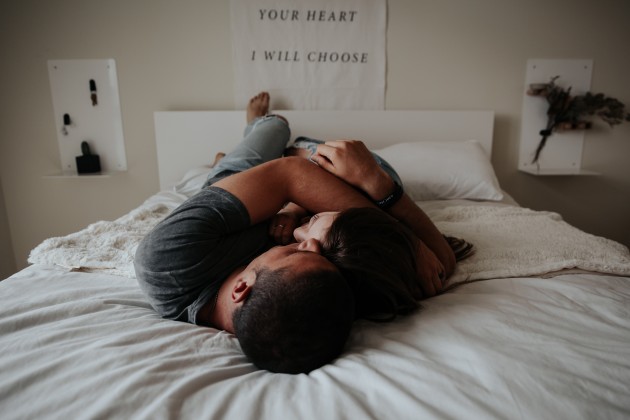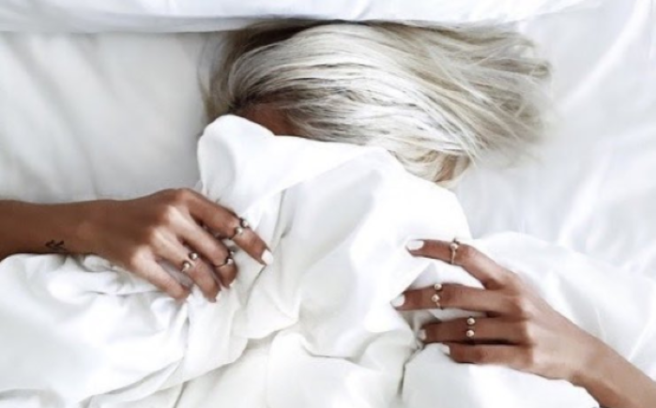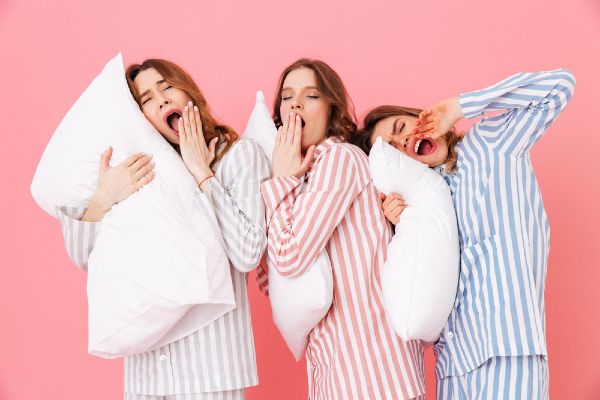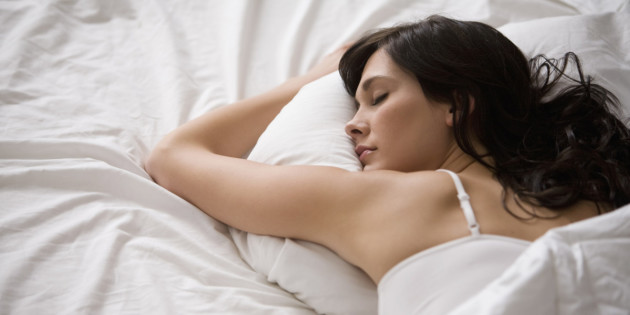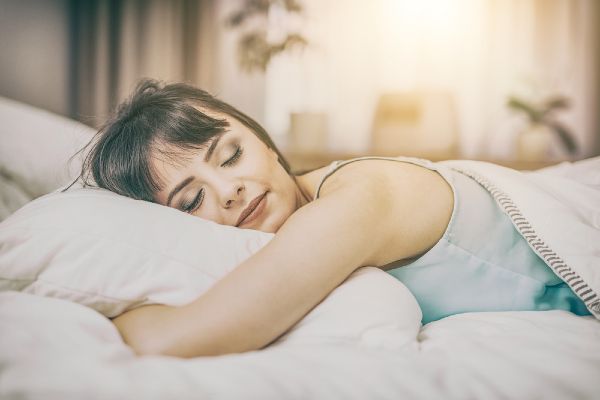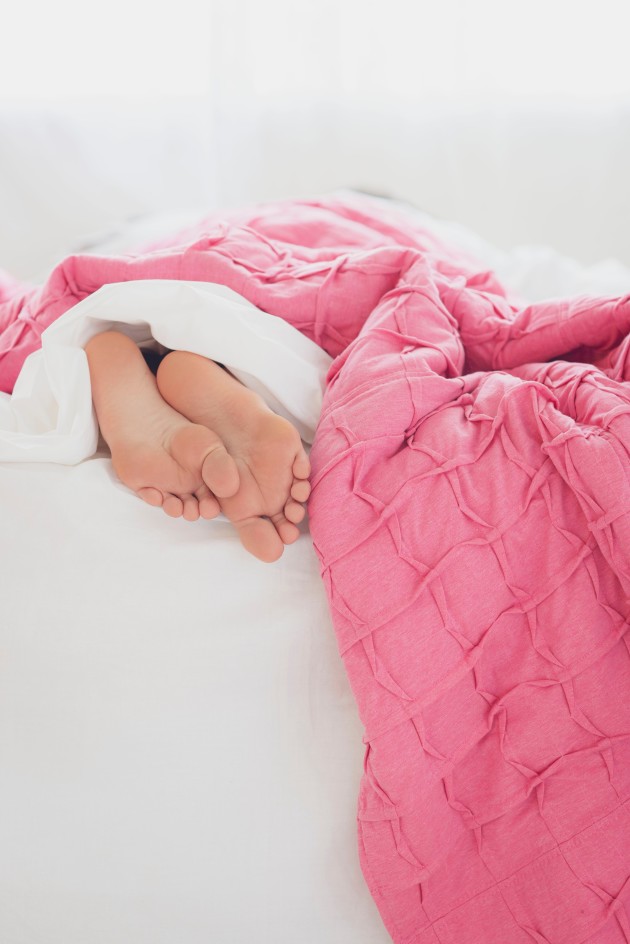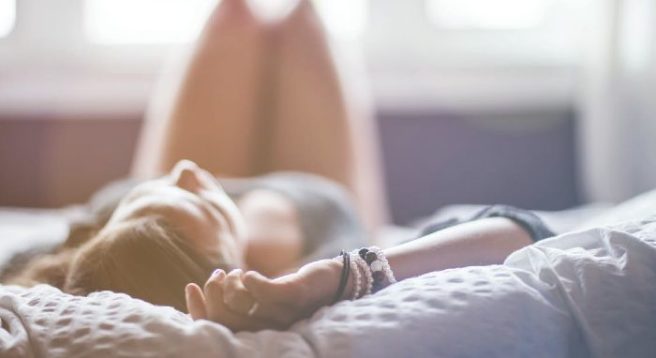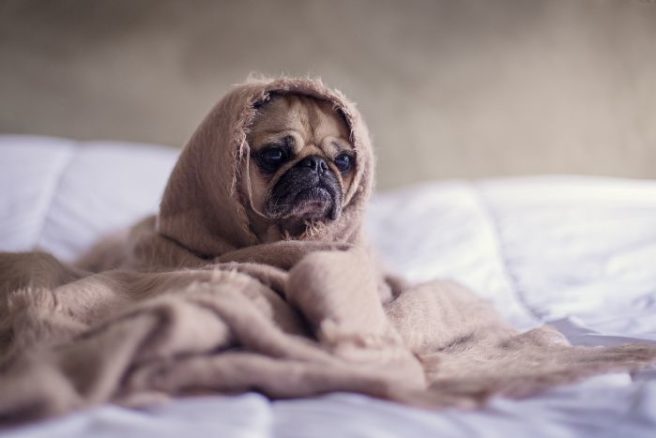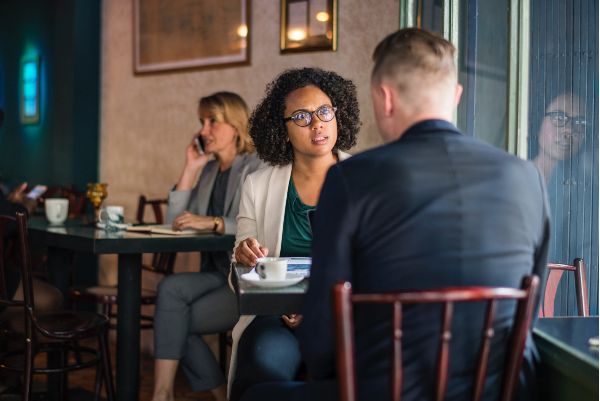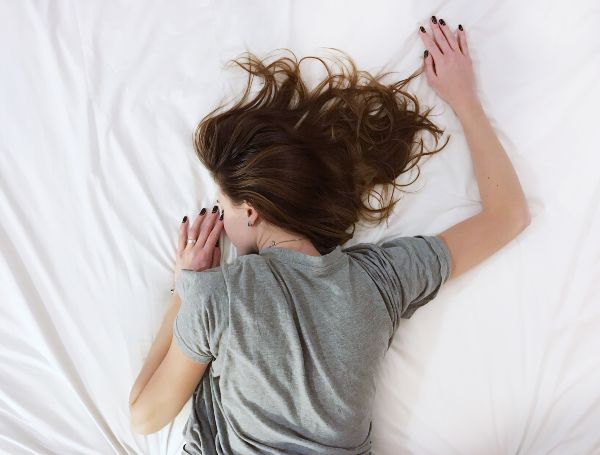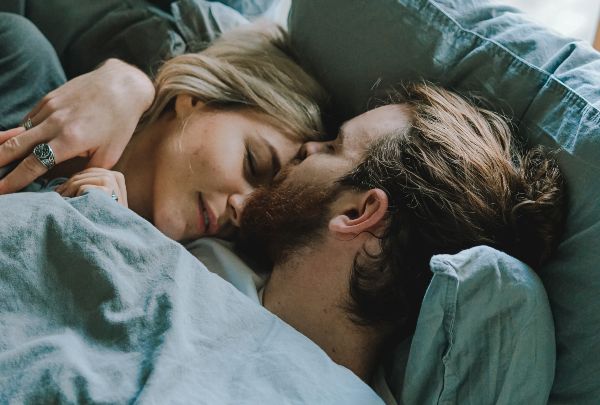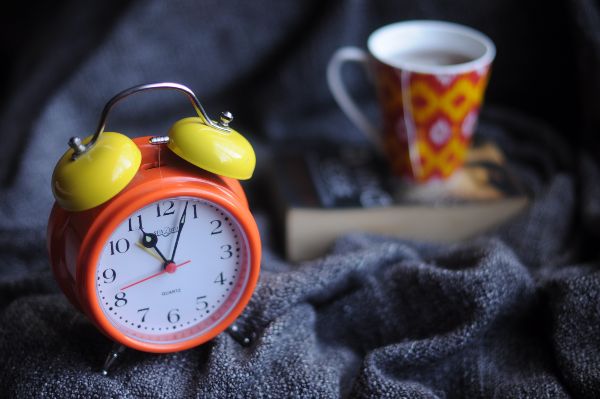These sleep meditations will help you to relax and conk out
We’ve all been there. It’s 1am. You’re lying in bed, the idea of sleep a distant dream because your mind is absolutely buzzing. You’re thinking about the stupid thing you said yesterday. The week before. A year ago. Why did you make that decision? What if that important thing doesn’t work out? What if someone hears about that thing that you said/did/caused?
It can feel impossible to surface from these thoughts, to gain perspective and clarity from your own over-thinking. But it’s so important to learn how to stop these thought processes in their tracks to protect our mental health. Our minds know the well-worn paths of these worries and jump from thought to thought if we don’t start to find ways to control them. The use of methods like mantras and sleepy teas have become increasingly popular as a method to slow down and focus our minds when they begin to spiral. But mantras are are usually short, grounding phrases, like ‘all is well’, ‘calm down’, ‘I am at peace’.
Sometimes we feel the need for longer-term methods that address the exact thought process our minds are going through. Sleep meditations are here to help. We have compiled some of our favourite meditations available on YouTube that can can help with sleep, anxiety, energy, grounding or anything you need in that moment. Here are our top picks:
Fall Asleep In Minutes…Sleep Talk-Down Guided Meditation Hypnosis for Sleeping – Jason Stephenson

Jason Stephenson is my absolute favourite meditation creator. With videos up every week addressing different themes, such as removing subconscious blockages, resetting the body and sleep talk downs, his channel has something for every situation, feeling and worry. His calming voice is great for the guided meditations where he speaks to you to aid your meditative journey and his sleep music creates deeply relaxing environments, ideal for study, relaxation, insomnia and to fall asleep fast.
Guided Meditation – Blissful Deep Relaxation – The Honest Guys

The Honest Guys have been writing and creating high quality guided meditations videos since 2009.
The meditations have one purpose: simply to try and help people. Every meditation is produced with genuine care for those people who use them because they too have needed the kind of help meditations are trying to offer others. They specialise in guided fantasy visualisations and relaxing meditation sleep music, all designed to work in harmony with your mind body and spirit to promote greater health. These ‘story’ meditations guide you on a relaxing journey to a beautiful fantasy location, designed to bring peace, positivity and sleep.
Deep sleep meditation for anxiety, stress reduction, peaceful deep sleep, deep fast sleep – Lauren Ostrowski Fenton

Would you like to fall asleep faster, sleep more deeply, and more easily? This guided sleep meditation is suited to adults, parents, children, students, and babies who are looking for help and guidance with achieving a night of deep sound sleep.
Lauren Ostrowski Fenton’s deep sleep guided meditations offer positive suggestions for encouraging a restorative, natural healing rest and sleep, together with a peaceful experience of total mind and body relaxation. Fall asleep fast at bedtime with this guided sleep meditation and wake up mindfully clear and focused ready to face your day. Suitable for all ages.
This guided meditation experience is recommended for repeated and ritualized listening. Develop a daily sleep ritualized practice and with regular listening this guided meditation will encourage positive sleep suggestion and positive cognitive sleep patterns.
Lauren is an expert in her field and holds a Master’s in counselling at Monash University Clayton Australia. She has been teaching meditation for 30 years and is a qualified Personal trainer with certificate 3 and 4 in Fitness and has lectured in the fitness and wellbeing industry for over 25 years.
Relaxing Sleep Music • Deep Sleeping Music, Relaxing Music, Stress Relief, Meditation Music (Flying) – Soothing Relaxation

Soothing Relaxation specialize in relaxing sleep music for deep sleeping and stress relief. Fall asleep to their beautiful nature videos and use the relaxing music ("Flying" by Peder B. Helland in this video) as sleeping music, soothing meditation music, relaxation music, study music and more.
Peder B. Helland is a composer from Norway and started his channel with a simple vision: to create a place that people can visit whenever they want to sit down and relax. He composes music that can be labelled as for example: sleep music, calm music, yoga music, study music, peaceful music, beautiful music and relaxing music.
Sleep Music: Night Oasis – Headspace

Night Oasis: For when you can't sleep or when you need a little background noise. Relaxing music that helps you create conditions for deep sleep.
Headspace is guided meditation for everybody. Download our app from the App Store or Google Play and learn how to meditate, wherever you are, whenever you like. Relax with guided meditation sessions that will help you rest and reset after a long day, let go of worried thoughts with our Stress pack, or create the ideal conditions for healthy, restful sleep with our sleep meditations and sleep sounds. That's as well as mindfulness exercises for everyday situations like commuting or cooking, dozens of animations like the ones you see on this channel, and eight different meditation techniques, all taught by Headspace's co-founder, Andy Puddicombe, a former Buddhist monk. With hundreds of hours of content, Headspace is your personal meditation guide to just about anything.
Fall Asleep Fast, Clear the Clutter of Your Mind, and Release Thoughts and Worry / Sleep Meditation – The Mindful Movement

This meditation allows you to release any worries, let go of the day’s events, and allow sleep to quickly and easily come to you, by inviting relaxation into your body and mind. Allow Sara's soothing voice to be your guide to effortlessly slow down the momentum from your day.
This is a sleep version of one of their most popular practices and contains an elevator visualisations. Together, these two meditations become a powerful practice to simplify and unclutter your mind and reduce anxiety and overthinking
Mindful Movement is an oasis where you can come to tap into your inner calm, develop a positive mindset and heal from the stress that’s blocking your fulfilment. They offer guided meditation, visualisations, and hypnosis as well as Yoga, Pilates and a variety of mindful movement practices to help you live mindfully, move well and feel great! They facilitate an environment to empower growth among a community of like-minded individuals who strive to live mindfully in all aspects of their lives. Guided meditation and movement videos published every week.
Deep Sleep Music, Insomnia, Sleep Meditation, Calm Music, Sleep Therapy, Study, Relax, Sleep, 1980 – Body Mind Zone

Body Mind Zone’s relaxing sleep music is specially created with binaural beats to help you feel sleepy and beat insomnia. Our ambient music makes use of binaural beats and delta waves to ensure that our music can be used for a variety of music genres, such as deep sleep music, healing music, peaceful music, soft music, stress relief music, spa music, yoga music, zen music, study music and more. We have a range of relaxing music for sleep meditation and lucid dreams that will help you achieve soothing relaxation and inspire a good night’s sleep and a state of zen. Our relaxing sleep music and healing music is beneficial, whether you want peaceful music for a power nap, calming music as sleep meditation music or soft music to study to.
Body Mind Zone’s sleep music is specially created to help you fall asleep. To fall asleep fast, our music for insomnia with its embedded delta waves is essential deep sleep music. Feeling sleepy? Use this sleeping music in the background for soothing relaxation or as meditation music after a busy day at work. Our beautiful music for sleeping is ideal relaxation music for stress relief.






